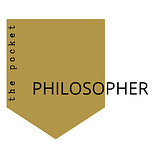WAR is a racket.
It always has been.
It is possibly the oldest, easily the most profitable, surely the most vicious. It is the only one international in scope. It is the only one in which the profits are reckoned in dollars and the losses in lives.
A racket is best described, I believe, as something that is not what it seems to the majority of the people. Only a small "inside" group knows what it is about. It is conducted for the benefit of the very few, at the expense of the very many. Out of war a few people make huge fortunes.
—Major General Smedley Butler
USMC, 2 Time Medal of Honor Recipient1
Today we conclude our 8 part series on Game Theory and the future of finance, technology, and war.
If you missed any of the previous newsletters feel free to visit the archive, they read like chapters in a book. Each episode also contains a podcast version so you can listen if you learn better that way. If you want to start from Chapter 1 visit here.
Yesterday we considered the humanitarian cost of unstable, centralized monetary policy and how it effects folks on the margins of life especially. We briefly touched on my experience working with refugees and asylum seekers from the Northern Triangle, and what El Salvador’s adoption of Bitcoin means from a humanitarian perspective.
And today we conclude the series continuing in this vein of thought asking, how can DeFi and Bitcoin in specific change the way we fight—can it bring an end to violent war?
Personally, I can’t find a better authority on the subject than Jason Lowery. He’s a Space Force Officer currently getting his Master’s at MIT, developing a thesis which has the potential to drastically alter the way we collectively think about and engage in war.


His working title, Mutually Assured Preservation is a direct nod to the Mutually Assured Destruction (MAD) of the Cold War we spoke about in Chapter 1.
Jason notes that Ford, Tesla, and even Thomas Edison connected their vision for energy-backed currency directly to the cessation of violence. (I wrote about Ford’s vision at Muscle Shoals Dam here if you’d like to read more.)
The New York Times quotes Ford regarding the Muscle Shoals project noting his goal was
to eliminate gold as the basis of world wealth, and substitute it for something different—units of power. By doing this, [Ford] said, war would cease.2
Edison noted of the project,
Ten years ago, I said I intended to put every ounce of brains and energy in me to stoppin’ war. I never meant anything more earnestly, and that’s why I want Muscle Shoals. I see a way, which, if it can be done, will do more to end war than a thousand years of agitation.”3
Of energy backed currency Nikola Tesla said,
…a radical departure must be made, an entirely new principle must be introduced, something that never existed before in warfare—a principle which will…turn the battle into a mere spectacle, a play, a contest without the loss of blood. To bring on the result, men must be dispensed with: machine fighting machine.4
If you didn’t know, I left the Army in 2018 after from graduating from West Point in 2016 as a Conscientious Objector. I write about here if you’d like to know more, but suffice to say, I reached a point at which I could no longer bear participating in systemic violence to perpetuate a global status quo which was inherently unequal and unjust.
I gave my life to the cause of militarism because like all humans I am susceptible to influence, to change, to complicity in evil, to manipulation, and to being won over with philosophy, justification, and moral arguments.
Even though at my deepest level I knew compassion, empathy, and connectivity I decided to join the military and make my occupational purpose to “close with and destroy” other human beings.
I did this because I am corruptible.
I became a pacifist not because I don’t “believe” in violence categorically (primarily self-defense) but because most of the world’s systemic violence isn’t functionally tied to the preservation of freedom, safety, or human flourishing.
My pacifism orients around thoughtful reflection regarding how violence is used as a tool to maintain colonial era power over marginalized people groups.

And so you can imagine my joy when I discover Mutually Assured Preservation.
Replacing brutality and violence with PoW and machine competition to solve geopolitical tension. To help us compete, not to each other’s loss in a zero-sum game, but to our mutual flourishing in an abundant, digital, cooperative environment.
Our goal at TPP is to address big problems with empathy and compassion. To scale our personal and collective capacity of these traits for our personal and group benefit.
These values are important because humans are cooperative to their core. And at times, this cooperation can lead to rivalry, competition, and tension. How we respond to those events determines everything from our collective security and safety to the way we treat the planet.
But what if we can scale and manage our empathy and cooperation, removing the need for counter-party trust with an incorruptible game?
Because cooperation, competition, war—these are all just human games, after all. And why can’t we make them more empathetic?
I know that was quite a bit, my friends.
We’ll be breaking this all down in smaller chunks on social media over the next few weeks, so keep an eye out.
We’ll see you tomorrow with a Weekend Review where we’ll bring the whole narrative together.
Until then,
Matt
https://ratical.org/ratville/CAH/warisaracket.pdf
https://www.linkedin.com/in/jason-lowery-648830151/detail/recent-activity/
ibid
ibid












